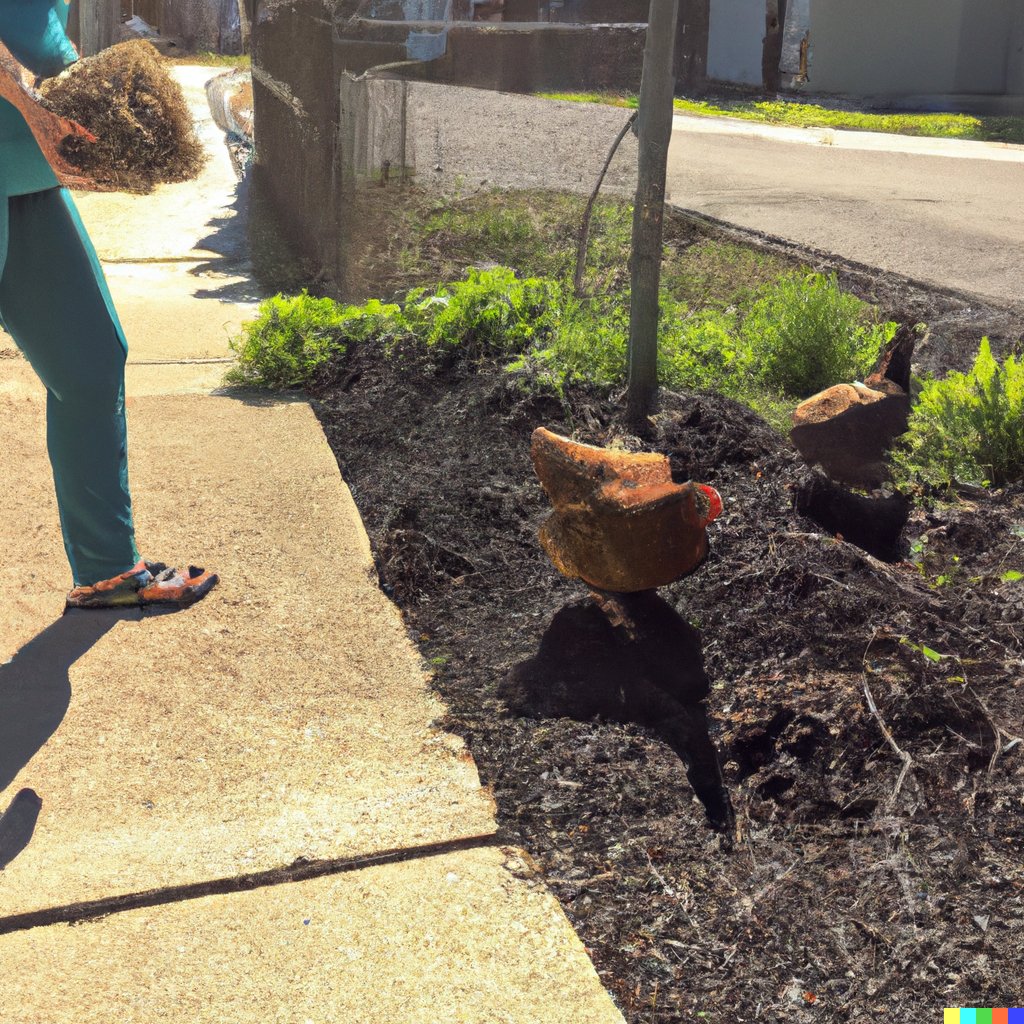
In a society that incessantly champions the virtues of busyness and the hustle culture, laziness is often misunderstood and unjustly maligned. This discourse challenges that prevailing narrative, looking into the negative stereotypes associated with laziness and unveiling its surprising advantages, such as heightened productivity, enhanced creativity, and improved mental well-being. It examines practical strategies for seamlessly integrating rest into one’s life while underscoring the necessity of achieving a harmonious balance between work and leisure. Prepare to uncover how a dash of laziness can pave the way for sustainable habits and ultimately contribute to a healthier lifestyle.
The Negative Stigma Surrounding Laziness
Laziness, often viewed through a lens of disdain, is typically associated with a deficiency in productivity and commitment. This reputation can give rise to guilt and anxiety, ultimately affecting one's mental health and overall well-being.
Many individuals wrestle with the delicate balance between the relentless demands of work and the crucial necessity for downtime, frequently mistaking relaxation for laziness. This confusion can create a vicious cycle of stress and unfulfilled potential.
However, one must consider that embracing moments of respite can actually nurture creativity, improve work-life balance, and pave the way for sustainable productivity in the long run. After all, even a well-oiled machine needs a bit of rest to repair to keep running smoothly!
Why Being Lazy is Often Viewed as Negative
The unfavorable perception of laziness is largely a product of societal expectations that equate personal worth with unwavering productivity and work efficiency. This unfortunate narrative often leaves those who dare to embrace leisure feeling guilty or, worse, unmotivated and worthless.
Such a viewpoint is intricately woven into the cultural fabric that prioritizes hustle over health, perpetuating the belief that one's contributions hold merit only when they are draped in the guise of ceaseless activity. As individuals traverse this demanding landscape, they frequently find themselves in a tug-of-war between external demands for performance and their internal yearning for self-care.
Ironically, in a society that venerates busyness, the simple act of stepping back to recharge can be a catalyst for creativity and innovation. It turns out that a sprinkle of 'lazy' time might just be the secret ingredient to unlocking genuine productivity.
The Benefits of Laziness
Though laziness is frequently vilified, one might argue that a dash of idleness can be quite the productivity booster.
After all, allowing our minds a little rest and rejuvenation may just spark the creative genius lurking within us.
It seems that sometimes, doing nothing can be the most productive thing one can do.
Increased Productivity and Creativity
Surprisingly, indulging in a bit of laziness can act as a catalyst for productivity and creativity, granting the mind a delightful opportunity to wander and ultimately fostering innovation and fresh ideas.
In our relentless, fast-paced society, where the badge of constant busyness is worn with pride, it may strike one as rather paradoxical to champion idleness. Yet, many accomplished individuals attribute their moments of brilliance to periods of well-deserved rest.
Studies show that a good night's sleep improves learning and problem-solving skills. Sleep also helps you pay attention, make decisions, and be creative. Sleep deficiency impairs decision-making, problem-solving, emotional control, and adaptability. It’s also linked to depression, suicide, and risky behavior.
Consider the habits of artists and writers; they often step away from their masterpieces to recharge. This intentional recess frequently sparks a new perspective on things and an unexpected surge of inspiration. It’s in these leisurely interludes that the subconscious mind works its magic, linking disparate concepts and paving the way for those unique solutions and creative breakthroughs that leave us in awe.
By weaving short breaks and unstructured downtime into their daily routines, individuals can enhance their overall productivity, convincingly demonstrating that, sometimes, doing less truly can yield more.
Improved Mental and Emotional Well-being
Indulging in leisurely activities can substantially elevate one’s mental and emotional well-being by offering much-needed relaxation and stress relief.
For example, a leisurely stroll through nature or curling up with an engaging book permits the mind to unwind and recharge, cultivating a serene oasis amid the daily chaos. Research indicates that even brief interludes from tasks can enhance focus and ignite creativity.
Reflecting on their experiences, many individuals discover that granting themselves these moments of 'laziness' not only replenishes their energy but also elevates their mood—who knew that a little idleness could be so invigorating?
Incorporating such practices into one’s daily routine can prove to be an essential aspect of self-care, underscoring the importance of prioritizing downtime for holistic mental health. After all, even the most diligent bees need to pause and smell the flowers now and then.
How to Incorporate Laziness into Your Life
Embracing a touch of laziness in our lives does not equate to shirking our responsibilities; instead, it signifies the art of crafting intentional lifestyle adjustments that elevate rest and leisure activities to the same esteemed level as our commitments.
Check out our guide to lazy sustainability and make long-term decisions sustainable.
After all, even the most diligent bees need to pause and smell the flowers from time to time.
Identifying Areas to Be Lazy In
To artfully weave a touch of laziness into one’s daily routine, one must first pinpoint specific aspects of life where increased downtime could spark delightful changes and nurture new habits.
Upon examining daily activities, one might uncover moments that feel excessively rushed or rigidly structured, thus revealing golden opportunities to decelerate and embrace a more leisurely pace. This deliberate approach to life choices not only promotes personal fulfillment but also enhances overall well-being—who knew that a little idleness could be so enriching?
Automation is a big key to being sustainably lazy. Nowadays we don’t have to wash our clothes or dishes by hand because technology can do that for us. So why are we not integrating technology into more aspects of life?
You could start a worm farm to reduce organic waste and the frequency of taking away trash. Integrating a robot vacuum cleaner is also an option. You also create fertilizer that you don’t have to buy. Why not filter your own drinking water with a reverse osmosis filter and stop carrying heavy water from the supermarket? You could automate watering your plants with a simple water pump and a timer.
One might consider scrutinizing work schedules, social engagements, and even the ever-daunting household chores; these are often prime candidates where a dash of laziness could cultivate creativity or inspire self-reflection.
By encouraging a thoughtful assessment of how time is allocated, it becomes simpler to create space for those invaluable pauses, ultimately allowing for a more vibrant and balanced life experience.
After all, sometimes the best ideas come when we’re not wandering around like headless chickens.
Setting Boundaries and Prioritizing Rest
Establishing boundaries is paramount when it comes to prioritizing rest and safeguarding one’s well-being from the unrelenting onslaught of work and life.
Recognizing the necessity for a break from distractions is akin to discovering a hidden oasis in a desert of chaos; it allows for the cultivation of a serene environment that fosters relaxation.

1. Rest Reduces Symptoms of Burnout
- Key Insight: Continuous overwork leads to burnout, characterized by exhaustion, irritability, and a sense of dread about work.
- Benefits:
- Rest creates mental and emotional distance from stressors.
- Helps prevent chronic fatigue and restores energy levels.
- Opens communication pathways for delegating tasks and setting boundaries, improving workplace relationships and morale.
2. Rest Enhances Productivity
- Key Insight: Rest enables the brain to consolidate memories, process information, and find creative solutions.
- Benefits:
- Improved creativity and problem-solving abilities.
- Enhanced work efficiency during active hours, as shown by experiments like Basecamp’s four-day workweek.
- Refreshed energy levels lead to more consistent and higher-quality work output.
3. Rest Provides Clarity on Big-Picture Goals
- Key Insight: Rest allows individuals and teams to pause and reflect, ensuring efforts are aligned with long-term objectives.
- Benefits:
- Prevents wasted effort on the wrong tasks or directions.
- Encourages strategic thinking and course corrections, reducing inefficiency.
- Strengthens team cohesion and fosters a collective sense of purpose.
4. Rest Supports Mental Health
- Key Insight: Deliberate rest improves focus, reduces stress, and enhances emotional resilience.
- Benefits:
- Greater mental clarity and reduced feelings of overwhelm.
- Protection against anxiety and depression caused by constant pressure.
- Opportunity to set boundaries and reclaim work-life balance.
5. Rest Recharges the Body
- Key Insight: Physical rest and movement balance are crucial for overall health and productivity.
- Benefits:
- Adequate sleep promotes cognitive function and physical recovery.
- Light physical activity during rest periods improves circulation and muscle balance.
- Healthy eating habits during downtime ensure sustained energy levels.
6. Rest Nourishes the Soul
- Key Insight: True restoration involves fulfilling personal needs and joys.
- Benefits:
- Joyful activities bring emotional fulfillment and spark passion.
- Self-care and asking for help alleviate stress and create a sense of well-being.
- Encourages alignment with personal values, enhancing life satisfaction.
7. Rest Leads to Sustainable Work Habits
- Key Insight: Incorporating rest into routines makes productivity sustainable over the long term.
- Benefits:
- Establishes healthy work-rest rhythms, preventing burnout.
- Encourages thoughtful use of energy and focus on high-impact activities.
- Builds a culture of balance, benefiting individuals and teams alike.
Implementing strategies such as scheduling regular breaks, unplugging from the digital sirens of technology, and defining specific work hours can significantly aid in achieving this delicate balance.
It is imperative to communicate these boundaries to both colleagues and family members, ensuring they grasp the significance of this self-care endeavor. Dedicating time to activities that bolster personal well-being—be it yoga, reading, or perhaps perfecting the art of doing absolutely nothing—can further amplify relaxation and rejuvenate the mind.
In the end, prioritizing these elements culminates in a healthier work-life equation, paving the way for a life that is not only fulfilling but also delightfully tranquil.
The Importance of Balance
Striking a harmonious balance between work and rest is not merely a suggestion; it is a prerequisite for long-term fulfillment and sustainability. After all, who can maintain their sanity while juggling deadlines and endless to-do lists without a little downtime? It’s like constantly being in debt and working to pay off your credit when instead you could let your money work for you and collect interest that you then can invest with a clear mind.
By prioritizing this equilibrium, one can effectively reduce stress levels and foster an overall sense of happiness—because let’s face it, even the most dedicated worker bee needs to occasionally step away from the hive and just enjoy some flowers.
Finding a Healthy Balance Between Work and Rest
Finding that elusive equilibrium between work and rest is akin to navigating a tightrope; it necessitates a deliberate commitment to prioritize leisure time while ensuring that energy conservation aligns harmoniously with personal values.
To achieve this balance, one might consider employing astute time management strategies, such as establishing clear boundaries for work hours and leveraging calendars or planners to maintain an organized overview of tasks.
By prioritizing activities based on urgency and significance, individuals can create a structured workflow that promotes productivity while still allowing for the delightful indulgence of leisure pursuits.
Incorporating hobbies and downtime into one’s schedule not only rejuvenates the mind but also serves to enhance creativity and problem-solving prowess—qualities that are essential for long-term success and well-being.
Ultimately, by weaving these techniques into daily life, one fosters a harmonious existence that embraces the fulfillment to be found in both work and play.
Long-Term Sustainability Through Laziness
Embracing a certain level of strategic laziness can surprisingly pave the way for long-term sustainability.
By prioritizing energy conservation and cultivating ecological awareness, one can foster lifestyle changes that not only benefit the individual but also contribute positively to the planet.
After all, sometimes the best way to save the world is to take a well-deserved break and let Mother Nature do her thing.
How Laziness Can Lead to Sustainable Habits
Laziness, in a delightful twist of irony, can actually nurture sustainable habits by prompting individuals to reflect on their resource management and ultimately shrink their ecological footprint. This can create circular systems that work by themselves and only require to input of waste to harvest food. For example, an automated aquaponics combined with a black soldier fly farm can make use of all types of organic leftovers to turn into protein, fa,t, and greens. All while you can lay around and do nothing until it's time to harvest your fresh fish for a delicious fried fish & chips and salad.
When one embraces the occasional bout of idleness, it opens up a rare opportunity for contemplation regarding daily choices and consumption patterns. This seemingly unproductive time can, quite paradoxically, transform into a golden chance to reassess shopping habits, food waste, and energy consumption.
By momentarily stepping away from the relentless hustle and bustle of everyday life, individuals might just stumble upon the merits of a more intentional lifestyle—prioritizing quality over quantity. Such a thoughtful reconsideration could catalyze a shift towards sustainable alternatives, inspiring individuals to make conscious decisions that not only enhance their own well-being but also positively impact the environment.
Who knew that a little laziness could lead to such profound ecological enlightenment?
Frequently Asked Questions
What does it mean to "start being lazy"?
Start being lazy refers to adopting a more relaxed and leisurely lifestyle, where you prioritize leverage, rest, and self-care over constantly being busy and productive.
How can being lazy contribute to long-term sustainability?
Being lazy allows us to conserve our energy and resources for moments when it's necessary, which can lead to more sustainable habits and a reduced carbon footprint in the long run.
Why is it important to take breaks and rest?
Rest and breaks are essential for our physical and mental well-being. It allows us to recharge from being in energy debt and prevent burnout, leading to better long-term sustainability in our daily lives.
Is being lazy the same as being unproductive?
No, being lazy does not necessarily mean being unproductive. It simply means being intentional about how we use and leverage our time and energy, and taking breaks when necessary.
How can we balance being lazy with being productive?
Finding a balance between rest and productivity is key. This can be achieved by setting realistic goals, prioritizing self-care, using automation, and learning to say no to unnecessary tasks.
What are some ways to start being lazy in a sustainable manner?
Some examples include taking breaks throughout the day, practicing mindfulness and relaxation techniques, and incorporating sustainable habits that reduce work like worm farms and drinking water filters into our daily routines.
















